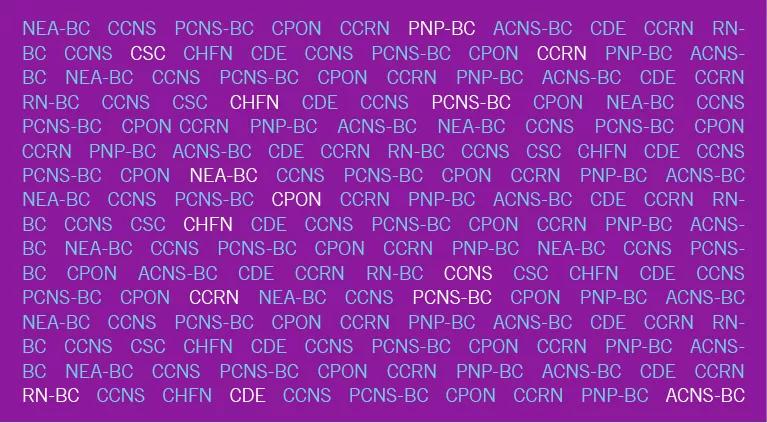Research shows 3 driving factors

Image content: This image is available to view online.
View image online (https://assets.clevelandclinic.org/transform/0394f779-b2fd-440e-86d2-d5a18934d630/14-NUR-1594QD-cert-690x380_jpg)
14-NUR-1594QD-cert-690×380
Certification, as defined by the American Board of Nursing Specialties, is “the formal recognition of the specialized knowledge, skills and experience demonstrated by the achievement of standards identified by a nursing specialty to promote optimal health outcomes.”
Advertisement
Cleveland Clinic is a non-profit academic medical center. Advertising on our site helps support our mission. We do not endorse non-Cleveland Clinic products or services. Policy
Clinical specialty certification can have a positive impact on registered nurses’ job satisfaction, and in other research, was associated with feelings of empowerment and collaboration with colleagues. Certification was also associated with better clinical outcomes.
Almost half of Cleveland Clinic nurses are certified.
In May 2013, a group of Cleveland Clinic nurses set out to examine nurses’ value of certification. Their study also attempted to determine links between perceived value of certification, likelihood to certify, nurse characteristics and barriers to certification.
Deborah Solomon, MSN, RN, ACNS-BC; Meredith Lahl, MSN, PCNS-BC, PNP-BC, CPON; and Marian Soat, MSN, RN, CCNS, CCRN, launched a prospective correlational study using survey methods. Under the mentorship of Mark McClelland, DNP, RN, CPHQ, the team surveyed nurses across Cleveland Clinic health system using the Perceived Value of Certification Tool© and investigator-developed questionnaires.
Of 1,589 participating nurses, there were four characteristics associated with nurses’ value of certification:
The five barriers to pursuing certification were:
“Nurses’ response regarding not having preparatory materials was interesting,” Lahl says. “We have materials available and need to ensure nurses are aware of resources.”
Advertisement
According to Solomon, these findings spurred a movement to heighten awareness of the many resources available to nurses to enhance their professional development.
Nurses’ likelihood to certify in the next six months increased when study participants:
“We see many more hands go up when asked during a review course, ‘Who is going to go for certification?’” says Solomon.
Although most survey respondents did not think that certification increased salary, Lahl and Solomon agreed that it shows a commitment to professional development, which enhances marketability.
Solomon says that research results will be used to make recommendations to nursing leadership aimed at increasing nurses’ value of certification. Key themes might be to promote membership in professional organizations, provide more diverse and accessible preparatory education, and recognize nurses who achieve certification.
Advertisement
Advertisement
Nurses play key role in comprehensive lifetime treatment program
Customized bots improve speed, efficiency by streamlining daily clinical, clerical tasks
Nurses play pivotal role in patients’ ability to recover in the comfort of their own homes
New protocol reduces costs, increases patient and caregiver satisfaction
Advocating for patient safety is imperative in fast-paced surgical settings
M-Power program improves the perinatal experience for people who have survived abuse
Advice for those pursuing a WOC nursing career
Veteran nurse shares his experience as a caregiver and community volunteer